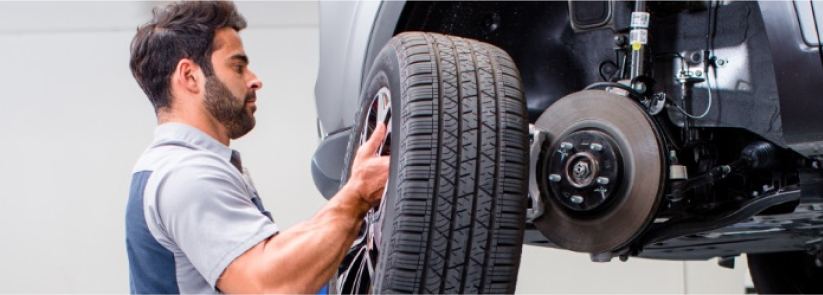Morris Tires: Where GMC Tire Service Fulfills Quality
Tire Service: The Effect of Climate Condition
When it comes to ensuring ideal performance and safety and security on the road, understanding the influence of weather problems on tire solution is vital. GMC Tire Service. In this discussion, we will check out the detailed partnership between weather condition problems and tire solution, losing light on the importance of weather-specific tire upkeep techniques and considerations.
Warmth and Tire Performance
When subjected to heats, tires experience adjustments in performance that can dramatically affect lorry security and handling. The warmth generated from extended driving or warm weather condition conditions triggers the tire rubber to soften, leading to decreased tread life and raised wear. As the rubber ends up being softer, the tire's grip when driving decreases, influencing braking distances and total traction. In extreme cases, extreme heat can even trigger tire blowouts, posturing an extreme safety and security threat to the vehicle and its owners.

Winter Impacts
Cold climate conditions can have a considerable impact on tire performance and security. As temperatures decline, tire rubber can harden, leading to reduced grip on icy or snow-covered roads. In winter, tires may also shed atmospheric pressure extra rapidly, which can affect handling and fuel performance. Furthermore, cool temperatures can create tire sidewalls to tense, boosting the risk of damages from pockets or various other roadway hazards.
To reduce the effects of cold weather condition on tires, it is important to on a regular basis check tire pressure and inflate them to the maker's recommended levels. Making use of winter or all-season tires created for cold weather conditions can additionally improve grip and grip on icy or snowy roads. Appropriate tire upkeep, consisting of normal assessments for wear and damages, becomes also much more critical throughout cooler months to make sure ideal efficiency and safety and security.
Rainy Conditions Impact
During wet problems, tire efficiency and security can be dramatically influenced by the wet road surfaces and reduced presence. The tread pattern of tires plays a critical function in keeping grip on damp roads. Tires with worn-out footsteps are more prone to hydroplaning, where a layer of water develops up between the road and the tire surface area, resulting in loss of traction. To fight this, chauffeurs ought to on a regular basis evaluate their tires for ample step depth and take into consideration investing in tires specifically designed for wet conditions.
Moreover, stormy weather condition can additionally reduce visibility, making it testing for motorists to see the road ahead clearly (GMC Tire Service). In such problems, it is necessary to readjust driving rates accordingly and preserve a safe adhering to range to permit abrupt stops. Properly filled with air tires can also assist in maintaining control on damp roadways by supplying better handling and hold
Snow and Tire Safety
When driving in snowy conditions, having the right tires can make a substantial difference in safety and security and efficiency. Winter he has a good point tires are created with unique rubber compounds and tread patterns to supply better grip on snow and ice compared to all-season tires.

It is vital to comply with manufacturer guidelines when mounting and using tire chains to avoid damage to the tires and vehicle. By selecting the right tires, preserving correct rising cost of living, and considering added grip help like tire chains, drivers can improve their safety when navigating snow-covered roadways.
Weather-Related Tire Maintenance
When confronted with various climate condition, appropriate tire maintenance becomes an important aspect of automobile safety and performance. Weather-related tire maintenance encompasses a range of techniques targeted at guaranteeing ideal tire feature and longevity in different weather situations. One important link key facet of weather-related tire maintenance is tire pressure policy. Fluctuating temperature levels can create tire pressure to vary, influencing traction and fuel performance. Consistently readjusting and inspecting tire pressure according to manufacturer recommendations is crucial for secure driving in transforming climate condition. In addition, tire step deepness plays a significant function in taking care of various climate elements. Tires with ample tread deepness provide better grasp on damp or icy roadways, minimizing the danger of skidding or hydroplaning. Inspecting tire step routinely and replacing tires when walk wear reaches a certain depth is vital for maintaining grip and security in unfavorable weather condition. By focusing on weather-related tire maintenance, motorists can improve safety and security, boost lorry efficiency, and prolong the lifespan of their tires.
Conclusion
In verdict, climate conditions have a considerable influence on tire efficiency and safety. From heat impacting tire stress and use to chilly weather decreasing traction, it is essential to think about the weather when maintaining and using tires.
In this conversation, we will discover the elaborate relationship between weather problems and tire service, shedding light on the value of weather-specific tire upkeep practices and factors to consider.
